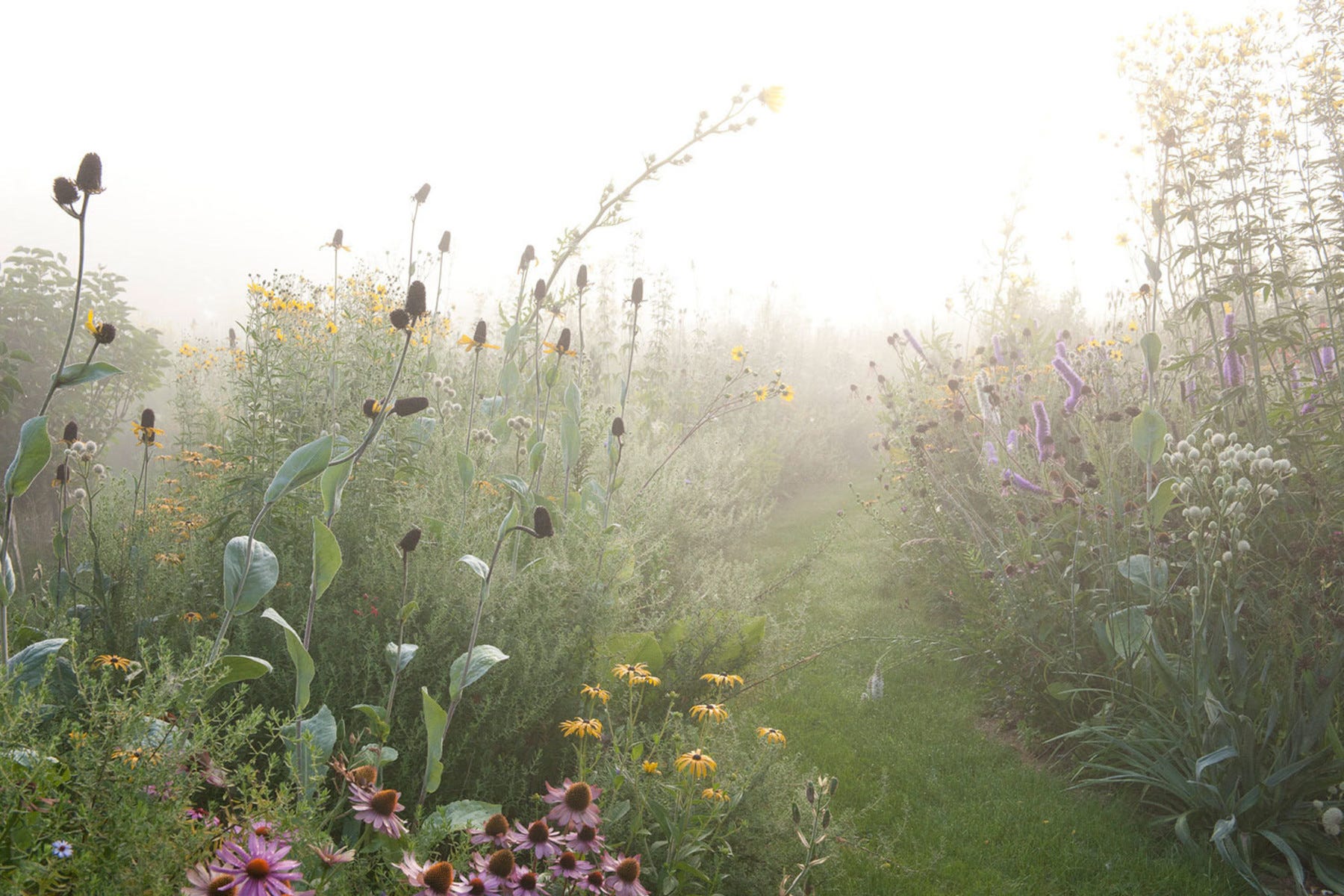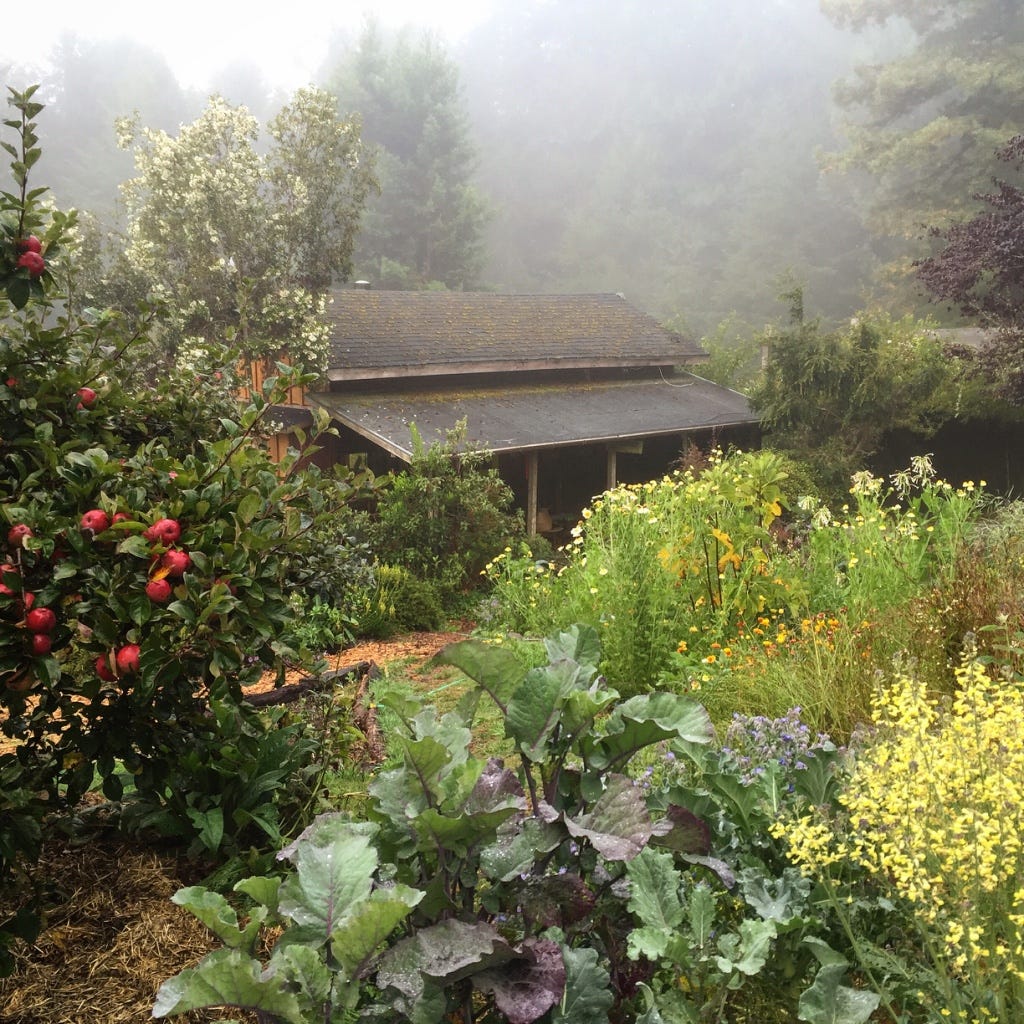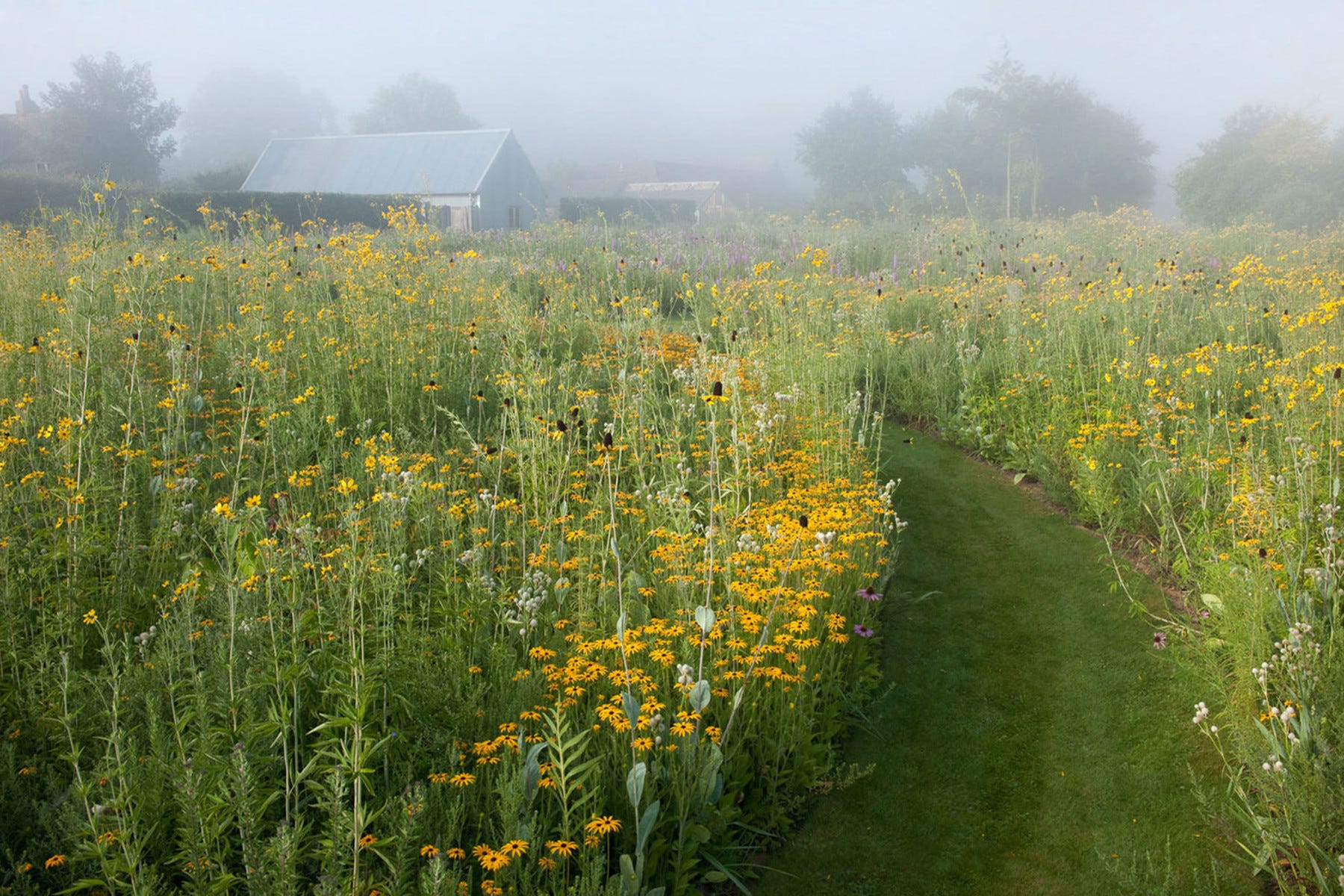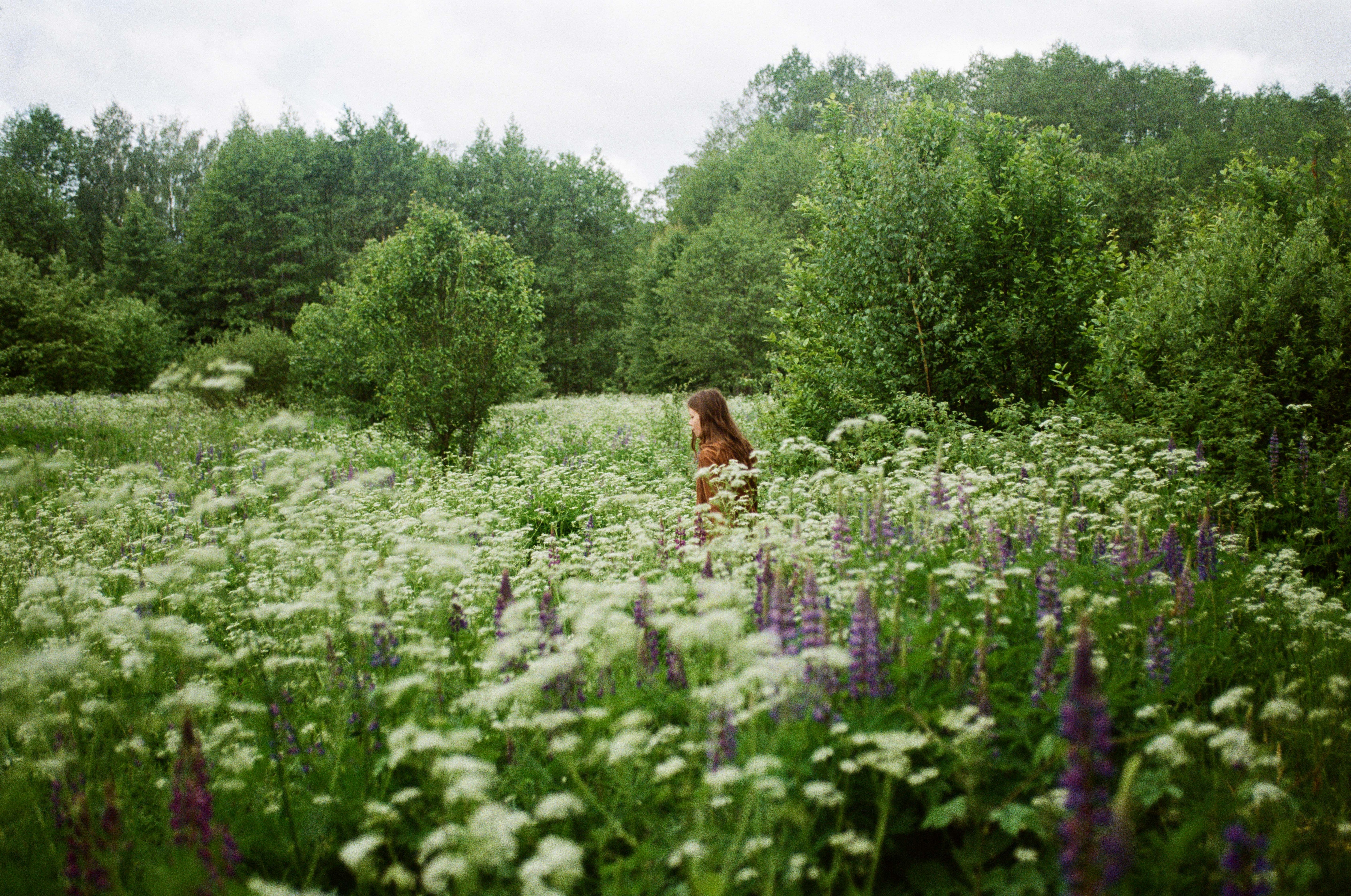Public Announcement
I am launching a 6-week authentic writing course that will start on April 3rd, 2025! You can learn more about the course and join below:
If you are a writer (or starting to write, or anywhere in between), I don’t want you to think of yourself as solely a gardener.
(I’ve come across types of writers: gardeners and architects. This post is not about these types.)
Gardener implies that you are intentionally planting, delineating, pruning, watching things grow, and eventually consuming the ripened. You are watering, you are protecting, you are waiting.
When ideas come to you, you plant them. Perhaps, you start 10 new drafts without fully fleshing out the ideas. You water them occasionally. You trim the hedges and collect the slugs at dusk.
It’s cosy, it’s dreamy. It takes time. When something grows to full size — it’s rewarding.
But this is a very controlled way of writing.
We miss out on the opportunity to commune with the invisible forces that bring our words into the world. We sleep through the little hours while the moon nourishes the plants with its light.
Writer as a Keeper of a Wild Herbal Meadow
I want you to consider something more expansive. Something that doesn’t have a fence around your writing. Something less controlled, inviting the surrounding ecosystem to envelop it.
Imagine a place between your garden and a wild meadow. Imagine a wild herbal, arboreal garden. The ecotone between curated creativity and wild untouched places. The ecotone, a place where two ecosystems meet, spreads both ways further.
This is a place not only for you, but for every other animal, human, and non-human being to revel in. You will never see all of its visitors. They will come at night, they will jump between large grasses, they will hide behind giant leaves. They will run into flowers, and chew off some of the new buds, they will do the pruning for you.
These visitors will make pathways that you would have never thought of. A doe will brush her fur over-ripening seeds and carry them to another side of the field. The seeds will fall and be absorbed by the soil without your witness. The seeds will sprout when the next rainstorm comes. Tiny roots will take place in your mind and heart, and attach to older roots for support.
Herbal, wild meadow garden implies medicinal prowess.
Your writing has a medicinal influence on those who wander into it — those who read.
Everything that grows in your mind’s wild meadow garden — nourishes the hungry, provides repose for the weary, cures the incurable, and mixes a deadly dose for what needs to symbolically die. It’s a psychic, energetic garden.
Some ideas must be nurtured, others — must be killed.
Clarissa Pinkola Estés tells us a story about an old man threading his way through swollen fields and dense forests.
Each step makes him even more exhausted than the last one. He carries a rapidly shrinking flicker of light. Finally, in darkness, he elbows his way through mud to reach a wooden hut.
Here, an old woman sits by the fire. She embraces the old man, and begins to rock him tightly — and he slowly ages backwards until he becomes a young boy again.
She plucks three golden hairs out of his head and throws them on the clay floor. He slips out of the old woman’s hands and crawls back towards the door. Giving her a smile, he turns into a bright morning sun and lifts up to the sky to light another day.
Estés continues:
“A powerful way to renew or strenghten one’s intention on action that has become fatigued is to throw some ideas away, and focus.
Take three hairs out of your endeavor and throw them to the ground. There they become like a wake-up call. Throwing them down makes a psychic noise, a chime, a resonance in the woman's spirit that causes activity to occur again. The sound of some of one's many ideas falling away becomes like an announcement of a new era or a new opportunity.
In reality, old La Que Sabe is giving the masculine a light pruning. We know that cutting away the deadwood helps a tree to grow stronger. We also know that pinching off the heads of blossoms of certain plants helps them grow far more bushy, far more lush.
For the wildish woman, the animus's cycle of increase and decrease is natural. It is an archaic process, an ancient process. Time out of mind, it is how women approached the world of ideas and the outer manifestation of them. This is how women do it.”
Your writing prunes ideas in my mind. My writing prunes ideas in your mind.
We visit each other’s psychic gardens—we get nourished, healed, awakened, and mutually directed at growth.

If you let go of control in your writing practice, you might trip up on a spiral stone circle, tumbled and gathered by someone in preparation for a ceremony.
You might stumble upon the the rituals that happen at dusk, with no invitation sent to you. You will see the fire and you will secretly join the dance in the shadows of fruit-bursting trees.
You might see, with a sliver of your eye, what happens when you let your writing garden become a wild meadow, full of herbs, heirloom vegetables planted by birds, opportunistic grasses landing in clear patches, crab apples guarding a new way for sour pears.
You will witness flourishing because there is help. Because you’re not writing by yourself. There is a multiplicity of beings who are co-authoring your work.
Whatever you are writing — however academic or poetic, practical or abstract — let in otherness into your creative process.
By opening our writing habits towards newness and unpredictability, we can find that there’s so much more written at the end. Richer words and soul-aligned messages come through more easily. It happens because we have left some space, emptiness.
This is a practice of letting go of a calcified way of creating, surrendering internet-prescribed systems.
How to generate new ideas for writing
All of that being said, here’s my practice that has helped me to write in complexity but keep a common thread going.
Write down something you are currently obsessed with/can’t stop thinking about.
Write down something else you are currently obsessed with/can’t stop thinking about.
Repeat.
Connect the ideas: build bridges, weave looms, braid grasses, bend branches, throw a rock pathway in the mud.
Writing is about finding new trails to cross: between medicine and fruit, between repose and pruning rituals. Between death and aliveness.
Writing is about connecting seemingly separate ideas—such as writing itself and wild meadows. ☺
❁
What’s your experience of growing a writing garden that feeds and nourishes yourself and others? What ideas have you connected before that seem to be distant on the surface?
With love,
Rūta









Love this so much!!!!
Thx for this god idea! I'll try to join in but give Qigong class until 10.40. It'll be shortly after that, if I may.